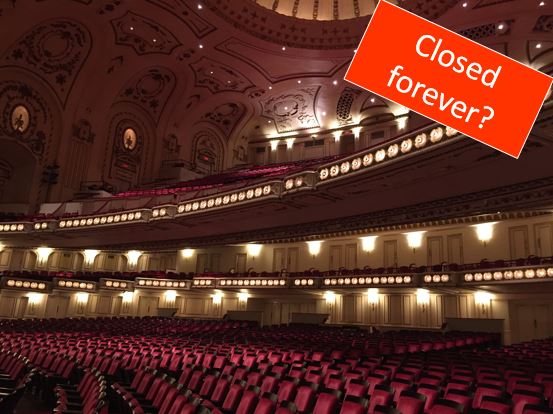*Support NewsLeaf.com from as little as £1 via PayPal by clicking here.
On a radio show with Andrew Bridgen and some other shouty Brexiters just before Christmas, I found all I could think about was a line from Julius Caesar. “Oh judgment! Thou art fled to brutish beasts. And men have lost their reason.”
I knew that if I were to recite those words, Bridgen would, with a grim inevitability, seize upon them as evidence I was an out-of-touch and pretentious member of the metropolitan liberal elite, and, sure enough, that’s exactly what he did.
It so happens no writer through history has ever connected with the people quite like Shakespeare and I pity Bridgen that he cannot see that.
At the most joyous as well as the most miserable moments of our lives, it’s this playwright’s words that we almost always find ourselves uttering, instinctively and often unconsciously, because he gave our emotions a language that is beautiful and unforgettable.
Also read:
- In defence of Piers Morgan
- Majority of Public wants Brexit transition period to be extended, according to poll
- A ‘Thank you’ letter to BTS for making lock downs much more entertaining
I’m not an Old Etonian and Balliol man like the prime minister – I was working on a local paper at the age of 16 – but Shakespeare belongs to all of us. I admit there was a time when my relationship with him was blocked every bit as much as it is for the Tory MP for North West Leicestershire, but that was in the days when I first became acquainted with the playwright at school and his words were force-fed to me on pages, which is, of course, never what he’d intended. The moment I began to experience them on stages, they became alive and they mattered.
Sir Ian McKellen’s final performance in the title role of King Lear two years ago had the tears welling up in my eyes because he seemed to embody the nation – delusional, arrogant and set on a profoundly destructive course of action – and now, since coronavirus has hit us, I can only think of the final moments of that great play with the ailing king on the heath daring the elements to “smite flat the thick rotundity of the world…”
Shakespeare has something to say about every facet of human experience and sometimes it can feel almost unsettlingly personal. In the general election, when I was standing as the Lib Dem candidate in Canterbury, I found myself quoting Cordelia’s words to Lear to my local association when I realised all we were about to do was divide the Remain vote and let in a hard-line Tory Brexiter:”We are not the first who, with best meaning, have incurred the worst…”
It’s hard to quantify how much theatre has enriched and informed my life over the years, and, of course, it’s not just Shakespeare that has helped to humanise me and to expand my emotional literacy. I woke up the other morning, looked out of the window, sighed, and suddenly I realised it was a line out of Samuel Beckett in Waiting for Godot that captured exactly how I was feeling: “nothing happens, nobody comes, nobody goes, it’s awful.”
“Theatres continued to defiantly unite us with other people and make us feel, at least for a while, a part of something bigger than ourselves”.
Theatre is not an indulgence for me and millions of others but a living, breathing necessity. I used to envy my friends who worked in drama because their world had not fundamentally changed since the beginning of the fifth century when the first plays were performed in the Theatre of Dionysus, built in the shadow of the Acropolis in Ancient Greece.
The sheer thrill of seeing the actors speaking their lines there in front of you – uniquely, in a way that can never be precisely repeated – was an idea that was always going to take off.
In recent years, the internet has ripped out of our lives so much of the human contact we used to take for granted, but theatres continued to defiantly unite us with other people and make us feel, at least for a while, a part of something bigger than ourselves. I’d say it does it even more than sport because it is about words and thoughts and ideas, and, indeed, far more people used to go to theatres each year than they did to football matches.
I feel the loss of theatre during these bleak and lonely days intensely. At times of national and personal trauma, theatres were the places to go to in order to draw strength and get us back on to our feet. Now that we need these great secular temples the most, we are cruelly denied them.
I’m hearing all the time that individual theatres that had long been a part of my life are teetering on the brink of collapse, sometimes yielding completely. Actors who lived from hand to mouth and followed their calling for the sheer love of it are struggling to feed themselves.
Plays that writers had sweated over for months – sometimes years – might well never be staged. No one in the theatre world – not actors, not theatres themselves – ever has money saved for a rainy day, which is of course why the show always has to go on.
“If this country has a living and beating heart, it is the theatre. It cannot and must not be stilled forever, and, for now, it needs all the support it can get”.
All of that rebellion and sedition and courage and daring that theatre represented is, for now, on hold. We are alone with our thoughts, perhaps sat in front of a television with its canned laughter and its repeats and its infernal safeness, yearning for something that is fresh and alive and real and challenging.
This of course the country should care about, but it so happens I have never seen our prime minister or any members of his cabinet at a theatre and I wonder if they can even begin to understand how much the experience means to so many of us. I wonder if a lot of them could actually now be doing what they are doing – or not doing – if they’d made it their habit to go to theatres and got to be humanised at least a little bit by them.
We talk now of the nuts and bolts that we will need to rebuild our society after the time of coronavirus is over, but we neglect our spiritual and mental health at our peril. If this country has a living and beating heart, it is the theatre. It cannot and must not be stilled forever, and, for now, it needs all the support it can get.
______________________________________________________________________________

Tim Walker is a Theatre Critic for The New European | Twitter: @ThatTimWalker




